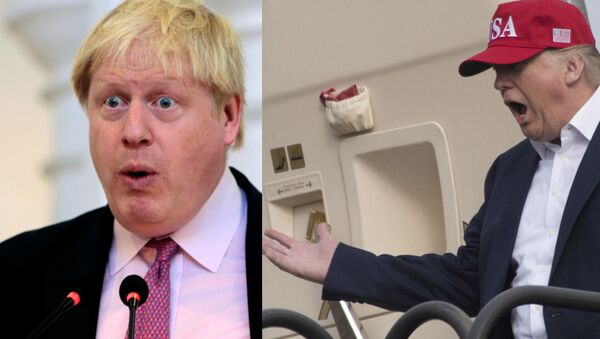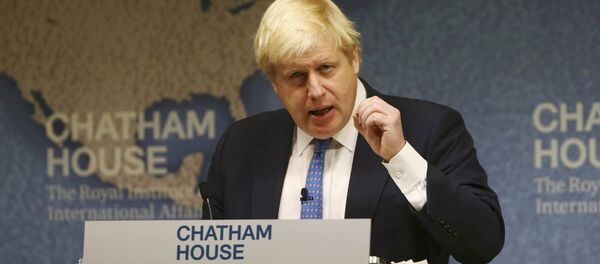Johnson, who flew to New York over the weekend, is expected to meet senior Republicans Paul Ryan, Bob Corker and Mitch McConnell, which comes after he met Trump's son-in-law, Jared Kushner, and the President-elect's incoming chief-of-staff, Steve Bannon.
The Foreign Secretary, who last year said Trump was "clearly out of his mind" over his stance on Muslims, is expected to focus on the state of the US-UK "special relationship."
"Following the successful meeting last month between the prime minister's chiefs of staff and president-elect Donald Trump's team, Boris Johnson is undertaking a short visit to the US for meetings with close advisers to the president-elect and senior congressional leaders," a UK government spokesman said.
Boris Johnson has arrived in New York on a hastily arranged visit to meet President-Elect Trump's team incl Jared Kuchner and Steve Bannon
— Daniel Sandford (@BBCDanielS) January 8, 2017
"The discussions will be focused on UK-US relations and other foreign policy matters."
BREAKING: First picture emerges of Boris Johnson's meeting with Trump team in New York pic.twitter.com/4tkEsdP48B
— Smita Jamdar (@smitajamdar) January 9, 2017
Trump also expressed a similar sentiment, taking to Twitter to say he was "very much" looking forward to meeting UK Prime Minister Theresa May in the coming months, describing Britain as "very special."
Russia and the Middle East: Fears of UK-US Split
Despite the warm words across the Atlantic, there are concerns in London that Trump's approach to various issues may break decades of unity between the two countries.
Trump's praise for Russian President Vladimir Putin has led to speculation the US may change its current stance on Russia, with some commentators even predicting that if relations between Moscow and Washington improve, then existing sanctions may be lifted.
Having a good relationship with Russia is a good thing, not a bad thing. Only "stupid" people, or fools, would think that it is bad! We…..
— Donald J. Trump (@realDonaldTrump) January 7, 2017
This has been met with concern in London, with British officials urging its allies to continue with its current approach to Russia, citing Moscow's actions in Ukraine and Crimea.
While no major announcements have been made, London will be keen to probe the Trump administration's stance on the current Syrian conflict, as any significant change in relations with Russia could shift the balance of power.
As it stands, Western powers have called for Syrian President Bashar al-Assad to stand down from his position, while Moscow has supported the anti-Daesh military campaign of the central government in Damascus, warning of the risks of decentralizing power in the already fragmented country.
Isolationism and NATO
The issue of US commitment to NATO is also expected to be on the agenda during Johnson's visit, following a series of isolationist comments from Trump, where the President-elect criticized the effectiveness of the military alliance.
Taking a swipe at some European NATO members, Trump said the alliance was "costing [the US] too much money," adding "we have to pay a lot less towards NATO."
After Trump, there would be serious chaos in US & Europe also. NATO could collapse, damaging US/Europe relations. Internal chaos in US too..
— Zaid Hamid (@ZaidZamanHamid) January 3, 2017
Washington's commitment to its NATO allies under Trump was further questioned during the US presidential election campaign, when Trump was asked what he would do in the hypothetical situation that Russia invaded a Baltic state, such as Estonia.
"Estonia is in the suburbs of St. Petersburg. 40% of Estonia is Russian… I'm not sure I would risk nuclear war over some place that is the suburb of St. Petersburg."
Theresa May hints Trump told her he backs Nato Article 5 "from the conversations I've had the US remains committed to Nato"
— Paul Waugh (@paulwaugh) January 8, 2017
Despite these concerns, British PM May dismissed worries over the US' role in NATO.
"Article 5 of NATO says that we do go to the support of any NATO country that has military action against it," she told Sky News.
"Sometimes people think there is going to be a change in the American approach to NATO. From the conversations I've had, I think America remains fully committed to NATO, as we do."



